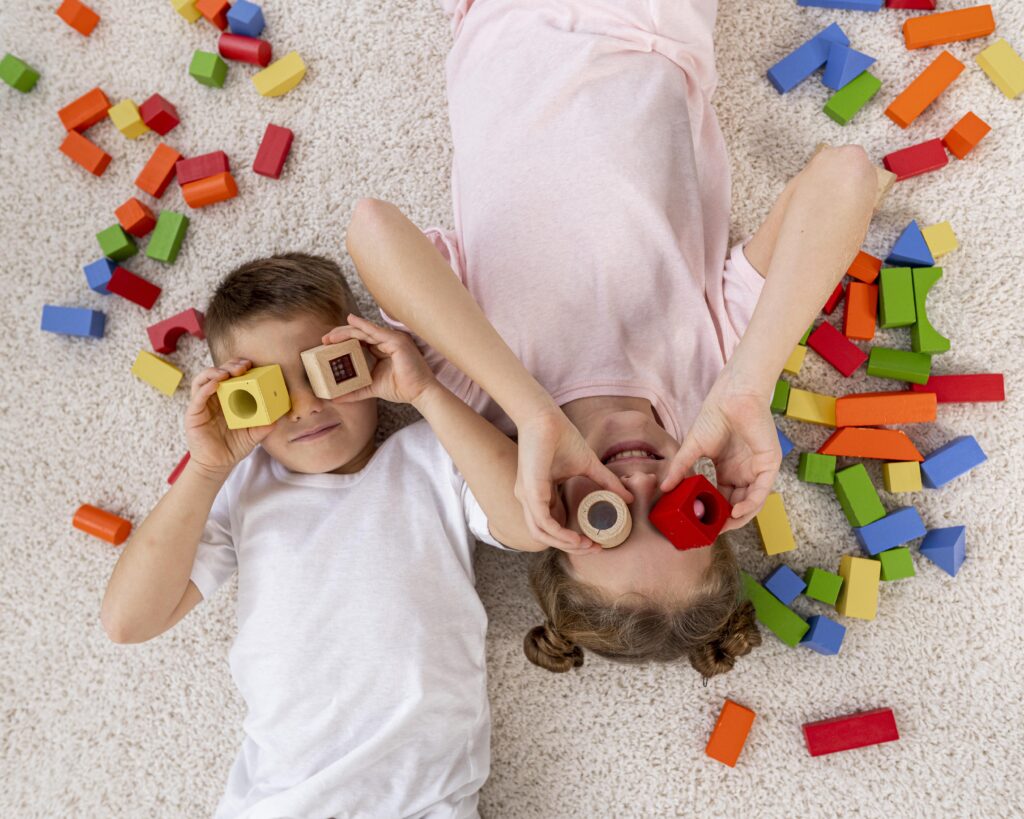
The Amazing Benefits of Toys for Child Development
Toys have always been a special part of childhood. They bring smiles, spark curiosity, and create memories. But beyond the joy and fun, toys play an important role in shaping a child’s mental, emotional, and physical development. From the first rattle in a baby’s hand to the complex puzzles solved by school-aged kids, toys act as powerful tools for learning and growth.
🧠 1. Mental Development & Problem Solvin
Toys like puzzles, building blocks, and logic games help children:
- Think critically
- Recognize patterns
- Solve problems independently
These toys improve memory, concentration, and decision-making skills. Children learn how things work, try different solutions, and develop confidence in their thinking.
🤲 2. Motor Skills and Hand-Eye Coordination
Toys that involve physical movement—such as stacking rings, shape sorters, or threading beads—are great for developing fine motor skills. Larger toys like balls, bikes, or push toys improve gross motor skills and body coordination.
Through such activities, children build:
- Finger and hand strength
- Better muscle control
- Coordination between what they see and how they move
🗣️ 3. Language and Communication Growth
Toys that encourage pretend play—like dolls, doctor sets, or puppets—allow children to:
- Use and understand language
- Practice speaking and listening
- Learn new words naturally
During play, children often create stories and scenarios, which helps them improve both verbal skills and emotional expression.
🎨 4. Creativity and Imagination
Art supplies, dress-up clothes, building sets, and open-ended toys inspire children to:
- Create their own worlds
- Explore new ideas
- Express emotions through play
Creative toys support independent thinking and imaginative exploration, both of which are essential for personal development and problem-solving in real life.
👫 5. Social and Emotional Learning
When children play together, they learn:
- Sharing and turn-taking
- Understanding others’ feelings
- Managing frustration and disappointment
- Cooperation and teamwork
Board games and role-play activities are especially helpful in teaching children how to interact respectfully with others and manage their own emotions.
📚 6. Making Learning Enjoyable
Educational toys make learning more enjoyable by introducing children to:
- Numbers and counting
- Colors and shapes
- Basic science and technology concepts
- Time and sequencing
This kind of play supports school readiness and helps children become curious learners who enjoy discovering new things.
💪 7. Building Confidence and Independence
Every time a child builds something, finishes a puzzle, or solves a challenge, they experience a sense of achievement. This builds:
- Self-confidence
- Patience and persistence
- A healthy sense of independence
Toys encourage children to take initiative, try new things, and trust their abilities.
🌈 Conclusion
Toys are not just tools for entertainment—they are essential companions in a child’s journey of growth and discovery. Whether it’s through laughter, imagination, or learning new skills, toys help shape the way children understand the world around them.
When given the right toys at the right age, children develop into confident, curious, and capable individuals. So next time you see a child lost in play, remember: something wonderful is happening in their brain and heart at that very moment.
